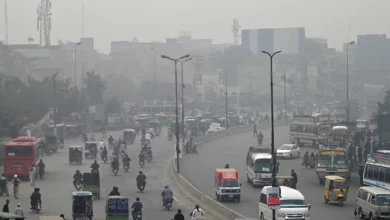Imagine the 6th of October Bridge empty of cars, with people peacefully walking about without risking their lives at every step. Imagine a city with pedestrian and green zones where kids can bicycle freely. Is this a dream? Surely, it’s something that can make you smile in Cairo, where, if you take a walk along the Corniche facing the Nile, you can come back home with your originally white T-shirt suddenly black tinted.
The World Carfree Day, taking place today, is a yearly mobilization during which people around the world get out of their cars for one day in promotion of the value of sustainable transportation–such as cycling and walking–and the decrease of human impact on the natural environment. It is encouraged by the World Carfree network, “which brings together organizations and individuals dedicated to promoting alternative car dependence,” states the website.
The idea of a car-free day was first introduced with the 1973 oil crisis, and was established as a European-wide event by the European Commission in 2000. The initiative continues to advocate an environmentally friendly lifestyle by persuading people to find alternative forms of transportation, such as buses, trains, subways, tramways, and clean-fuel vehicles in their everyday life.
Transportation today relies largely on fossil fuel resources such as petroleum. Combustion produces carbon dioxide (CO2), as well as many other pollutants. By diminishing the emission of CO2 produced by transport, there could be a positive impact on diminishing the effect of global warming. In order to do that, governments should provide citizens with efficient and sustainable public transportation, and pedestrian zones in order to encourage people to get out of their cars.
In Egypt, a good initiative that aims at reducing both traffic and pollution is the first online carpooling community, Egypt Carpoolers. Car-sharing, a widespread practice in America and Europe, is an organized way to give a ride to someone who works or lives in the same area as you, so that more than one person can travel in a car. Motorists and passengers can search and offer commutes through carpooling software, public websites, or pick-up points; once they find the match, they organize the details for the trip individually, sharing the expenses.
As Hesham Abdel Wahab, one of the founders of Egypt carpoolers, told Al-Masry Al-Youm, “the initial response was amazing with hundreds of people joining the website every day! But soon after the hype, it started to slow down as we realized that people were only curious about the new concept but not willing to actually try carpooling.”
Despite the website reaching the considerable number of 2000 users, the level of activity is currently slow. As Wahab explains, “many users responded that sharing a ride with a “complete stranger” is “unfamiliar to our culture.” However, the co-founder of the Egyptian carpooling service believes that “sooner or later people will realize the benefit of carpooling and that the risks are the same as taking a taxi; theoretically even less, because the person shares a ride with a neighbor who is not a complete stranger.”




